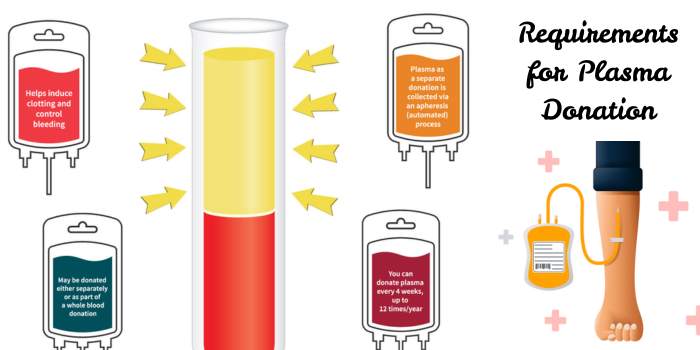Plasma donation is an act wherein persons give the yellowish portion of the blood called plasma, which can be of importance for those who need it. A high number of patients are Plasma deficient, and it is vital to treat burn victims, patients with clotting disease, or patients with impaired immune functions. It is also essential in developing critical medications and therapies. The more people that require plasma, the more donors~ to allow those treatments to work. Donating plasma means you help save the lives of many people around the world and improve many people’s health. Additionally, Biolife Promo Codes provide coupon codes that help donors earn extra money, making the donation process even more rewarding.
What is Plasma and Why is It Important?
Plasma comprises approximately 55% of blood volume and encompasses all liquids in blood, with the liquids being slightly yellow and containing more products like hormones and electrolytes as well. Water forms the primary part of the plasma itself. Plasma is crucial for maintaining health by supporting several body functions. Plasma is vital for maintaining the fitness of the character via supporting some physique functions. Many plasma donation centers offer compensation for donors, generally ranging from $20 to $50 per donation. You can check out the plasma pay chart for additional information.
Key Functions of Plasma:
Transporting Nutrients and Waste: Irradiated cells are dumped while at the same time, nutrients such as glucose and even vitamins, and amino acids together with urea and carbon are also removed from the cells.
Maintaining Blood Pressure and Volume: Among the proteins that plasma contains is albumin, which aids in maintaining the appropriate pressure, volume, and blood fluid levels while ensuring that fluid does not ooze from the blood vessels.
Importance in Medicine:
Burns and Trauma: When an individual suffers extreme burns or injuries, plasma is used to fix the stage of fluid and proteins in the body.
Clotting Disorders: For instance, we have hemophilia and a man or woman with that ailment bleeds profusely due to a deficiency of clotting elements that are obtained
from plasma.
This is inclusive of its numerous roles and uses, plasma is an imperative element in the current medical world and capacity donating plasma is a heroic act.
Eligibility Criteria for Plasma Donation
Meet particular standards and necessities is a platform that should be checked out to ensure the protection of each donor and recipient. Health requirements ensure that the donor is strong enough to donate and the donation is also safe for everyone.
1. Age Requirements
- Minimum Age: Donors must be at least 18 years old.
- Maximum Age: In most instances, donors should be under 69 years of age. However, some centers allow donations from older individuals if they are in good health.
2. Weight Requirements
Minimum Weight: Donors need to weigh at least 110 pounds (50 kg). This ensures that the donor has enough blood volume to safely give plasma without compromising their health.
3. Health Status
General Health: Donors must be in a good general state of health. Do not include: Any cardiovascular affection that remains uncontrolled along with poorly regulated diabetes and any lung ailments.
Blood Pressure and Heart Rate: The systolic and diastolic measures should fall anywhere within 90/50 to 180/100 mmHg. The average pulse rate is normally set between 50 to 100 beats per minute; these should also be reachable without strain.
The first donor’s positive estimate is the general feeling of comfortable vitality, which the donor must own. Also, the donor should be free of colds, flu, and infection during the donation period.
4. Medical History
Some medical conditions may render a person ineligible to donate plasma, which include:
- Chronic Diseases: Such diseases are kidney disease, some heart disease, and poorly controlled diabetes.
- Recent Surgery: People who have gone through current surgical treatment or different invasive scientific processes may be temporarily banned from donating.
5. Travel History
Malaria-Prone Areas: Those who have traveled to malaria-prone areas are occasionally required to wait for a positive period before donating plasma. This is done to avoid transferring practicable infections to recipients.
6. Medications
Blood Thinning Drugs: Individuals who take blood-thinning drugs such as warfarin or some other drugs may be temporarily or permanently deferred from donating plasma since the drugs can affect clotting and increase the risk of complications.
Meeting all these selection criteria ensures safety for both the person donating plasma and benefits recipients who wholly depend on the therapies derived from plasma. All locations have differences, so the donor should look at the website or contact local centers for applicable specific guidelines and information.
Safety and Risks Associated with Plasma Donation
Although donating plasma is usually safe, there are a few minor risks and side consequences to be conscious of, just like with any medical operation.
Side Effects: You can also have mild vertigo or dehydration following plasma donation. Additionally, some patients have soreness or bruises at the needle site, but these side effects are typically transient and go fast.
Safety is a top priority for donation centers. You may feel secure about the procedure because they employ sterile equipment and their personnel is trained to ensure that everything goes according to plan.
Overdonation Risks: It’s crucial to keep a 28-day gap between plasma donations. Overdonating may cause low protein levels or weariness, which may harm your health.
By following these pointers and taking care of yourself before and after donating, plasma donation remains a safe, simple, and extraordinarily necessary way to help others in need
How to Prepare for Plasma Donation?
Your plasma donation experience might be more comfortable and seamless if you prepare ahead of time. The following useful advice will help to guarantee a successful donation:
1. Drink plenty of water
It’s essential to stay hydrated earlier than making your donation. Drinking enough water will assist you find your veins more easily and reduce the likelihood that you will feel dizzy after giving blood. On the morning of your donation and the day before, strive to consume 8–10 glasses of water.
2. Eat Healthily Before
A quality meal has to be eaten a few hours before blood donation. To keep your energy levels constant, select food items high in carbohydrates and proteins, like lean meats, nuts, or legumes. Steer clear of greasy ingredients thinking about how they may additionally degrade the plasma’s quality.
Compensation and Incentives for Donors
Plasma donation facilities regularly provide compensation to motivate normal donations, typically ranging from $20 to $50 per donation. Donors can typically donate plasma as soon as every 28 days, and some facilities offer higher repayments for first-time donations or extraordinary promotions. Referral bonuses and loyalty applications are also common, moneymaking donors with points or additional compensation for bringing in new donors. Non-monetary incentives, like free fitness screenings or branded items, are additionally offered. Beyond economic rewards, many donors discover achievement in understanding their donation helps hold lives, in unique for sufferers with stipulations like burns, clotting disorders, and immune deficiencies.
FAQs
What is plasma, and why is it important?
Plasma is the yellowish liquid in the blood that helps hold blood stress and quantity and is essential for treating quite a range of clinical conditions.
What are the criteria applicable for a plasma donation?
They should be 18 years at least, and weigh not less than 110 pounds.
Is plasma donation safe?
Yes, plasma donation is generally safe with minor aspect results like dizziness or bruising.
How can I put together for plasma donation?
You should drink water and eat a healthy meal before donating plasma.
Do plasma donors obtain compensation?
Yes, many centers offer financial compensation and other incentives for plasma donations.



